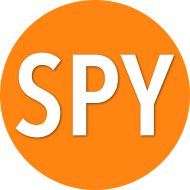Welcome to people who were at the #Internet50 LDN event…
The big picture
How can we better understand our societies and socio-technical change, engage citizens, and facilitate progress?
A half century
Almost 50 years ago, 10:30 pm on 29 October 1969, a team led by Professor Leonard Kleinrock sent a message from a computer at the University of California (UCLA) to a computer at the Stanford Research Institute, 350 miles to the north. Less than a month later, on 21 November 1969, the first permanent ARPANET link was established between the two.
A group of inspired researchers, computer scientists, and telecoms engineers – lead by some of the best and the brightest thinkers and doers in US public service, academia and industry – made the first connection of what would become the Internet. The potential value to humanity – people, education, civil society, and industry – of what they imagined had been partially imagined in science fiction but their work was practically motivated while pursuing ways to better share resources and, ultimately, enhance knowledge creation.
The view from today
For most people the modern Internet – experienced through the Web and apps, text and image, voice and video, on all manner of devices, in the public realm, ambiently and unconsciously – is a minor miracle, that has transformed their personal, working and public lives. Yet most believe the Internet and Web are the same thing, and have been around not much longer than they have been using them. How they were created isn’t even a mystery: it’s rarely enquired about. How they work isn’t a question on the lips of many. Their future, and the future of such profound innovations, isn’t widely debated.
Challenges
To stimulate learning and debate
The 50th anniversary of the Internet and, earlier this year, the 30th anniversary of the Web, present a wonderful opportunity to raise the level of understanding and interest in the Internet (and the Web and digital technologies), to reflect on our achievements (and the associated challenges), and to imagine where we might go next. Some key questions should be asked are:
- How can we apply to future innovation, what we have learned about from the creation of the Internet?
- What have we learned about how culture and technology – in this case the Internet – interact?
- What have we achieved, who created these achievements, what facilitated this, and how might we celebrate that?
- How can we better exploit and realise the current potential the Internet and digital technologies presents, as well as the challenges?
- How do we better exploit the future potential of these technologies?
Associated challenges
- How might we coordinate and enhance the activities of those taking up these challenges?
- How do we facilitate ordinary people telling stories about how they have used Internet technologies to improve their lives?
- How do we leverage the possibilities of our new technologies and designs to create new forms of accessible knowledge which can be created and manipulated by millions of people?
- How do we promote and apply the insights we might gain from such new knowledge?
Get involved
If you would like to discuss this idea and get involved please contact me or post a note below:
[Originally posted as a Facebook Note, 25/10/2019, and re-published slightly edited]
